Macro Calculator
This free, easy-to-use macro calculator gives you your optimal macronutrients and calories. It’s a weight loss or muscle gain calculator for both women and men.
Combine with macro counting or flexible dieting to reach your goals faster.
Now what do I do with my macros?
Our comprehensive macro-based fat loss program shows you what to do. Learn more
How do macros work?
The foods we eat are made up of three macros (macronutrients). These are carbohydrates (carbs), protein, and fat.
Chicken is high in protein but has no carbs; rice is high in carbs but has very little fat or protein. The three macronutrients provide the body with energy and raw materials for growth and repair.
By calculating the appropriate daily calorie amount for you, we can then break this down into the best macronutrient ratios to achieve weight loss.
Basic steps for macro counting
- Enter details into the calculator
Make sure to choose the correct goal. - Take note of your calories and macros
These will be the targets you are aiming for each day. - Track your macros
Use an app or pre-plan your meals. - Measure results
Don’t use basic weight scales.
Use proper body composition scales (we recommend Renpho) to measure fat and muscle mass changes.
What is a good macro ratio for fat loss or muscle gain?
Your macros should be based on your Total Daily Energy Expenditure (TDEE) and goals.
The calculator defaults to the best macro ratio proven to work for most people.
This ratio is:
- 30% fat
- Protein is 0.65 grams per pound of body weight,
- The remainder is carbs.
Depending on your goal, this will be either a calorie deficit or a surplus.
You can go further and make more adjustments: Perhaps you’re an extreme endomorph and do better with fewer carbs. Or perhaps you have one kidney and need to eat less protein.
You can fine-tune your results with a bit of math. See how to change your macros here.
What is a good protein ratio?
Rather than a percentage, proteins are based on your body weight. Our calculator has three settings:
- Moderate adjusts the ratio to 0.65 grams per pound of body weight.
This is appropriate for sedentary individuals or people with higher body fat percentages. - High is for active people with moderate strength training and an average body fat percentage.
- Maximum will set the ratio to 1 gram per pound.
This amount is good for bodybuilding and gaining muscle mass. You must be doing intense training.
Find out how to fine-tune your protein ratios when counting macros
Fat macro ratio
Set fat at 30% of daily energy expenditure.
Most people do very well with this amount of fat. See more about choosing the best macro fats. Because of high-fat diets like keto, many people are now eating more fat than they need to.
Carbohydrate macro ratio
Once you’ve calculated protein and fat, the remainder of your daily calories should be from carbohydrates.
Carbs fuel your body and workouts – and are the body’s preferred energy source.
If you come from a low-carb background, this may seem high. However, according to respected nutritional research, this is a moderate amount of carbs.
If you are eating according to your TDEE, the notion that carbs cause weight gain or stop fat loss is incorrect.
Using as a Calorie Deficit Calculator
As a weight loss calculator, this tool establishes a safe calorie deficit only.
The Lose option puts you in a 20% calorie deficit, promoting safe, steady weight loss.
The best macro ratio for body recomposition
If you want to recompose your body (lose fat and gain muscle simultaneously), then use the body recomposition calculator.
Macro ratio for maintenance
The Maintain button shows you the macro levels to maintain your current weight.
This is great if you have lost weight and don’t want to gain it back.
Macro ratio for muscle gain
The Gain button puts you in a 20% calorie surplus.
The macro breakdown is designed to build muscle fast in conjunction and must be combined with a comprehensive weight training program.
Underweight people can also use it.
TIP: Try starting with the maintenance goal and gradually increasing calories if you want lean muscle gains.
Calculating macros using your body fat percentage
The calculator uses your body weight to determine calories and macros.
However, you can obtain superior results by using your body fat percentage. The calculator allows you to choose which method: Normal for body weight, Lean Mass for fat percentage.
When to choose the Lean Mass Formula
If you are lean (have a low body fat percentage), choose the Lean Mass formula and enter your body fat %.
If you are classified as obese and have a lot of weight to lose, the lean mass formula is superior. You can read more about macro counting and obesity.
Help? Calculate your ideal body weight or get an assessment of your body fat percentage.
Why the difference? Muscle cells burn more calories than fat cells, so the more accurately we measure this, the better your results will be.
How to calculate macros per meal
You can break this down into meals once you’ve calculated your daily macros in the calculator.
Choose from 2 to 6 meals daily to see the macro ratio you can track for each meal. For some people, this is easier, but for others, this is too much detail.
Do what works for you.
Meal Plans
See a 5-day macro-based meal plan. It includes three meals and two snacks per day.
Macro calculator activity level settings
A higher activity level means a higher daily calorie goal.
For example – if you maintain your weight at 2,000 calories per day, adding vigorous daily exercise means you need more calories to maintain your weight.
If you are sedentary and trying to lose weight, adding exercise will increase your daily calorie goal.
Although it seems counterintuitive, more energy is required to fuel workouts. More workouts lead to an increasing metabolism, which in turn burns more fat!
Undereating is one of the leading causes of the weight loss plateau.
So many of our clients previously “hit the wall” with dieting. They would continually reduce calories, stop losing fat, and gain weight when they eat a little more.
Macro counting defeats this by prescribing the right food and calorie levels.
Which activity level do I choose?
- Sedentary: Just regular everyday activity like a bit of walking, a couple of flights of stairs, eating, etc.
- Light: Any activity that burns 200-400 calories (females) or 250-500 calories (males) over your sedentary amount.
- Moderate: Any activity that burns 400-650 calories (females) or 500-800 calories (males) more than your sedentary amount.
- Extreme: Any activity that burns more than 650 calories (females) or more than 800 calories (males) in addition to your sedentary amount.
Other options for determining your calorie burn
- Use our calories burned calculator – it accurately assesses over 380 activities.
- Use a fitness tracker such as a Fitbit or Apple Watch (note that they can overestimate calorie burn).
Why should I eat more when I exercise more?
High physical activity not fueled with enough calories will lead to muscle catabolism (breakdown of muscle fiber).
This lack of nutrition could stall your weight loss, so eat up if you love to exercise!
I’ve got my macros – now what?
Once you’ve identified your target daily macros, you must determine the macros in all your foods.
By tracking them daily, you can reach your recommended macro targets that encourage fat loss, muscle gain, or whatever your goal may be.
You can learn more about the macro counting system and the flexible dieting philosophy. Many people use a diet tracking app to help them stick to macro targets.
For more specifics on what to eat – see a sample macro meal plan or a list of macros for familiar foods.
View article sourcesSources
- Mifflin, M. D., St Jeor, S. T., Hill, L. A., Scott, B. J., Daugherty, S. A., & Koh, Y. O. (1990). A new predictive equation for resting energy expenditure in healthy individuals. The American Journal of Clinical Nutrition, 51 (2), 241-247. Link
- McArdle, W. D., Katch, F. I., & Katch, V. L. (2010). Exercise physiology: nutrition, energy, and human performance. Lippincott Williams & Wilkins. Link
- Jequier, E. (1994). Carbohydrates as a source of energy. The American journal of clinical nutrition, 59(3), 682S-685S.
- Lemon, P. W., Tarnopolsky, M. A., MacDougall, J. D., & Atkinson, S. A. (1992). Protein requirements and muscle mass/strength changes during intensive training in novice bodybuilders. Journal of Applied Physiology, 73(2), 767-775. study abstract link
- Grundy, S. M. (1999). The optimal ratio of fat-to-carbohydrate in the diet. Annual review of nutrition, 19(1), 325-341. abstract
- Conlin, L.A., Aguilar, D.T., Rogers, G.E. et al. Flexible vs. rigid dieting in resistance-trained individuals seeking to optimize their physiques: A randomized controlled trial. J Int Soc Sports Nutr 18, 52 (2021). https://doi.org/10.1186/s12970-021-00452-2
2,104 Comments


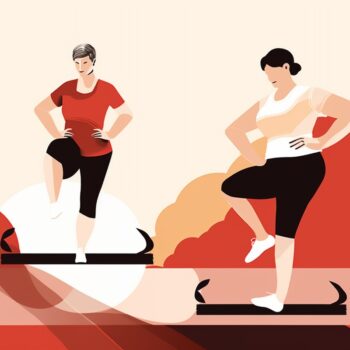 Menopause Macro Calculator
Menopause Macro Calculator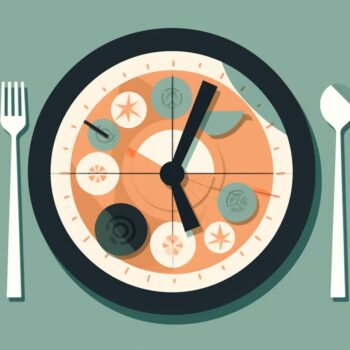 Intermittent Fasting Calculator
Intermittent Fasting Calculator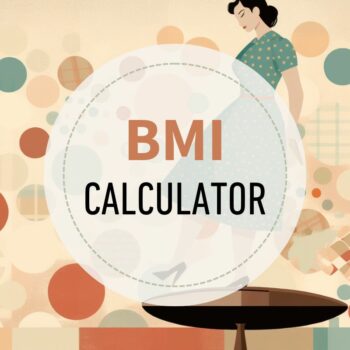 BMI Calculator
BMI Calculator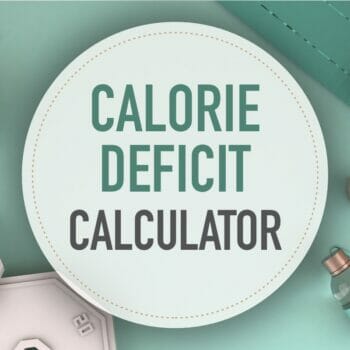 Calorie Deficit Calculator
Calorie Deficit Calculator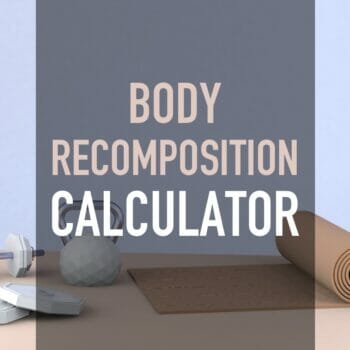 Body Recomposition Calculator
Body Recomposition Calculator
Hi, I’m a healthy 34 yo female and I do hiit training 3-5 days a week. I recently completed a 6 wk challenge with my starting weight at 132lb, I’m 5’6, and my body fat 24%. After the 6 weeks I am up to 139lbs and 28% body fat, no muscle gain. How is this possible? Do I need to eat more? How do I decrease my body fat? Thanks
Hi Alyssa, I’m sure that very frustrating to do all the work and not get the results you expected. I’d have to look at everything in detail, especially your nutrition over the last 6 weeks to pinpoint why and then the correct action to take. Would you consider coaching with me? Personalized Macros Coaching
Yes I would definitely consider that. I can only see the form to apply, but how much does it cost?
I’ll email you.
Undereating and doing too much cardio and not enough weight training will result in that
Hi. I read a study on how people with high insulin resistance lost more weight when they went low-carb versus people with high insulin sensitivity who lost more weight when they went high-carb.
https://pubmed.ncbi.nlm.nih.gov/15897479/
I’m someone who deals with insulin resistance so I want low-carb but I’m going to be doing a combination of strength training (5x) and cardio (4x) every week so I can’t go too low. I’ve already calculated my daily calories and my workout schedule. Is 40% protein, 35% fat, 25% carb a good macro ratio? Thanks.
You may want to lower your protein a tad since you don’t want protein to be converted to energy. Perhaps try 35% protein, 40% fat, 25% carbs. After two weeks evaluate based on progress, energy levels, and performance.
Hi, I’m on antidepressants and find it hard to lose weight. I don’t think I eat enough but worry I will put on more weight if I eat more. Do you have experience of helping anyone on AD’s lose weight? I’m currently 210lbs, 5ft 6″ do strength training 3 times a week and walking (bad knees). I eat around 1200 cal a day can’t lose a pound.. thanks Elsie
Hi Elsie, I do. I’ve worked with over 1500 people over the last 8 years with all kinds of obstacles. ED can definitely play a part in making things more difficult but I’ll put a plan in place to get things moving and yes you should be eating more at least on your strength training days.
Hi..Alex here, I’m male, 31, 6’8, 250lbs, body fat 12.4% and fat free body weight is 217.6lb I am moderately active. I do more weight lifting, and less cardio. I want to build more muscle, but I’ve struggled doing this in the last 4 year span. I am slowly building, but it’s little by little..I’m not sure if it’s because of my height, or if I’m not eating enough.. any guidance would be great.
Hi Alex, great job on your efforts so far. Given that you’re 6’8″ you probably do have pretty crazy nutritional needs especially if you want to gain. How many calories are you currently eating?
I want lose weight, but gain muscle to keep curves.. 5’6 195. Weight train 3 times per week and do cardio remaining 4 days. What is the best way to achieve this?
Hi Kate, You’d want to use the lose setting and the lowest protein setting. Also, figure out where your execise sits calorie burn-wise here: Calories Burned Calculator
If I am 18 and I am 140 lbs and I’m 5’11 and my goal is to weigh 180 in muscle mass what is the best ratio of macronutrients?
Hi Ethan, In addition to macros you’ll need to increase your total calories. Use the max protein setting.
Hi, not sure if you can help. 5’4, 40 years old, 210 lbs. My PT has advised I need to consume 2734 calories per day including 241g daily of Protein (275g carbs, 77g fat). I am a fitness noob but my brother says this sounds insanely excessive and surely puts on and doesn’t reduce weight. A few online calculators including yours are suggesting calorie consumption of 1800-2000 per day with 200g protein intake.
Does my PTs figures sound right to you? They are vastly diffefent from what this websites calculator gives me. Seems excessive?
Yes, it sounds excessive. Unless you are doing a large volume of exercise (intense daily workouts), it’s very unlikely you would lose weight on this diet (if that is your goal).
We stand by our macro calculator. It’s the basis of helping over 14,000 paid customers and over 1,500 personally coached clients.
Hi I am 36, 5’5 and weigh 168 lbs. I am considered an endomorph after my pregnancy but was thin my whole life before. Wanting to lose about 20 lbs of fat. I’m pretty sedentary bei g a nurse working from home. Some days when looking at my fitbit it says I’ve only burned 1650, 1800, or even sometimes 2000 calories. What is the best way to achieve my 20 lb goal? Could I do it by May? Thank you!
Hi Tasha, You want to establish a safe calorie deficit and eat moderate protein. You also need to adjust your consumption based on how active you are on a given day. If you need some more exact guidance, check out my Macro Solution program or 1 on 1 coaching options.
Just wanted to comment and give a big kudos to you guys & the new features. I’ve been using/recommending your site to people for years in their fitness journeys. I’ve used it in my own for years and years as well. It’s worked wonders and gotten me noticeable results every time I’ve needed them. So congrats on the upgrades and thank you for your role in helping me over the years.
Thanks so much for your kind words. Happy to hear how helpful some of the features have been. Don’t hesitate to reach out if you need any help.
Hi, hoping you can help, I’m stuck! I’m 14.7 stone, age 45, and 5’6 height female.
I go to the gym and do legs or upper body strength excercises 4 x a week, walk the dog briskly 5 times a week 4km. I also do trigger pilates 2x a week, and boxing Hiit 1x a week.I eat around 1200-1500 calories most days and also have a bottle of vino on a friday and Saturday. I eat between 8am and 6pm, drink 3ltr water a day. My weight just won’t budge, I log everything. Food – porridge for brekkie and generally meat/chicken/fish with green veg most lunch/times. I have rice once a week. Do I need to be eating more? Whilst I’m active I’m sedentary most afternoons ands evenings- all my exercise is between 6am and midday.
Hi Dani, It does seem that you are under eating and not supporting your exercise properly. The bottle of wine would be around 650 calories but isn’t providing anything your body needs for muscle development, etc. If you look after your muscle tissue then it will start rewarding you. Feed the muscle, burn the fat.
I thought low carbs lost weight faster. I understand as far as energy levels a moderate amount but more carbs than protein. That’s not ideal is it?
Hi Richard, There are a lot of myths and misconceptions regarding carbs. The bottom line is that they don’t not cause fat gain unless you eat an amount that pushes you into a calorie surplus. If you eat more protein than your body can utilize it will also convert to energy. Protein is an expensive energy source, therefore, you really want to reserve it for repair and building, not energy. This means that carbs are typically a higher proportion of the diet than protein.
My question is around calculating the protein macro. Some recommendations say we should have at at least 1g of protein per KILOGRAM of bodyweight, and others say it’s 1g of protein per POUND of bodyweight.
Can you give some guidance on if we should be multiplying by KILOGRAMS of bodyweight or POUNDS of bodyweight to arrive at our protein measurement?
Thank you for your question! The general recommendation for protein intake is to consume 0.8 grams of protein per kilogram of body weight per day. However, this number can vary based on your age, sex, and level of physical activity. For example, athletes and highly active individuals may require more protein to support muscle recovery and repair.
However, our calculator uses a higher amount than this (about 1.4 grams per kilogram). For several reasons we have found this to be more helpful (better management of hunger, satiation, and supports resistance training).
Overall, it’s important to consider your individual needs, so we recommend working with a personal coach.
I have a question! My husband is very lean, he could stand to gain 5-10 pounds but he needs to watch his carbs for cholesterol and glucose numbers. I am not sure but I am thinking he should have about 150 grams of carbs a day. My problem is I don’t know what to do with the protein and fat ratios. Can someone help me please? TIA
Hi Jamie, Thanks for visiting. If he wants to limit his carbs to 150 then that means 600 of his daily calories will come from carbs. You would then need to find his protein and fat amount by dividing the remaining calories among those two. Here’s an article where I explain the math. https://healthyeater.com/how-to-calculate-your-macros
I also do custom calculations for people so let me know if you are interested in that option.
Hi Ted, I work out with a trainer 3 days a week, weight lifting and some cardio not much. I weigh 118 lbs and I am 5 ft tall. I want to lose 10 pounds what should I do as I can’t seem to lose weight. Thank you so much
Hi Patti, Great job on working to get stronger! What have you been doing nutritionally to lose fat?
How old are you